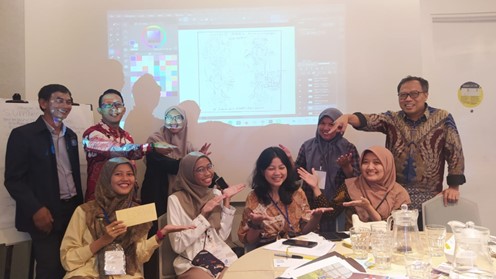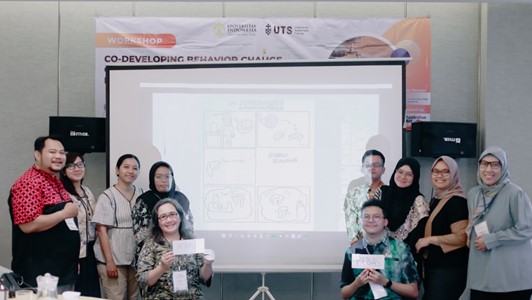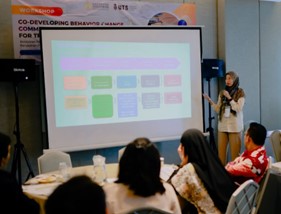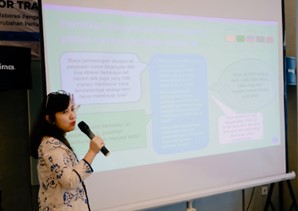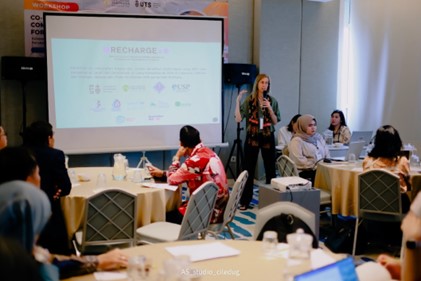The Faculty of Engineering at the University of Indonesia (FTUI) and the Institute Sustainable (ISF) from the University of Technology Sydney (UTS) organized a workshop titled “Co-developing Behavior Change Communication Campaign Concepts for Transitions to Piped Water Supply” on January 26–27, 2024, at Hotel Yello Harmoni Jakarta. This workshop represents the final phase of their research, a creative design with the theme “Responding To A Changing Climate Through The Advancement And Resilience Of Groundwater For Equity (RECHARGE),” funded by the Water for Women Fund.
“Over the next two days, we will collectively strive to create a behaviour change communication campaign that is expected to assist the government or piped water providers,” stated Prof. Juliet Willets, the research director of ISF-UTS, in her opening remarks.
On the first day of the workshop, participants were divided into two groups, Ledeng and Bebas, to develop campaign concepts through illustrations covering regulatory, technical, environmental, cultural, and socio-economic themes. Ledeng group crafted a story comparing children’s growth using tap water (Perusahaan Air Minum – PAM) with groundwater. Meanwhile, the Bebas group generated a story about the practicality and worry-free use of PAM water. In addition to creating illustrations, the first day of the workshop also featured special speakers, Dr. Diana Teresa Pakasi from the Gender Studies Center, Faculty of Social and Political Sciences UI, and Dr. Cindy Rianti Priadi from the Environmental Engineering Department of the University of Indonesia, who presented findings and the Theory of Change.
The second day of the workshop involved sharing information and clarifying the results of the first-day discussions from both groups. Dr. Vida Parady, a lecturer in the Department of Communication Science at the University of Indonesia, led the discussion in this session.
Prof. Juliet Willetts and Dr Cindy Rianti Priadi engaged in a discussion regarding behavioural change. “Behavioral change takes a very long time. There needs to be an encouragement for the community to change societal behaviour patterns. The biggest difference in implementation (in this context, the transition from using groundwater to piped water) in Indonesia is a greater focus on motives. Meanwhile, in other countries, the emphasis is more on communicating the latest information,” said Prof. Juliet Willetts.
“Regarding this research, it has not reached the execution phase due to the one-year duration. Nevertheless, we will follow up on today’s discussion by conceptualizing and detailing the discussed media,” said Dr. Cindy in her closing remarks.
The workshop was attended by 14 participants, including representatives from the research locations, PAM Jaya, Regional Water Company (PDAM) Tirta Asasta Depok, the Association of Water Companies throughout Indonesia (PERPAMSI), PDAM Tirta Patriot Bekasi, the Jakarta Health Department, the West Jakarta Health Office, and the Sanitarian of Duri Selatan Community Health Center.
FTUI Dean, Prof. Dr. Ir. Heri Hermansyah, S.T., M.Eng., IPU., provided his response, “The Co-developing Behavior Change Communication Campaign Concepts for Transitions to Piped Water Supply workshop has raised awareness among many stakeholders about the importance of behavioural changes in society. Anything can happen in the future, so we must understand the current groundwater conditions. Hopefully, more exploration related to this issue will be conducted.”
***
Office of Public Communication
Faculty of Engineering, University of Indonesia

